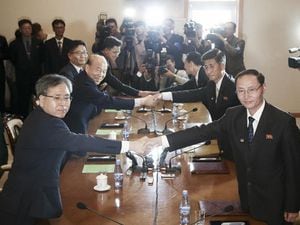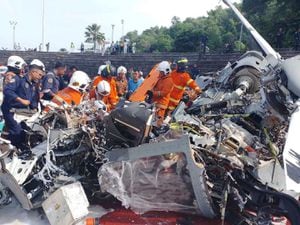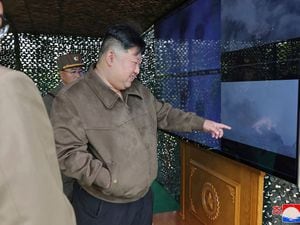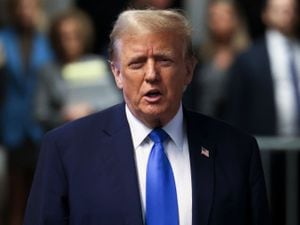Rival Koreas agree to reunions of war-separated families
South Korea said the reunions will take place at North Korea’s Diamond Mountain resort in August.

North and South Korea have agreed to hold temporary reunions of families divided by the 1950-53 Korean War as they boost reconciliation efforts amid a diplomatic push to resolve the North Korean nuclear crisis.
Seoul’s Unification Ministry said the reunions will take place at North Korea’s Diamond Mountain resort from August 20 to 26.
It said the countries will each send 100 participants to the reunions. People with mobility problems will be allowed to take a relative to help them.
Such temporary reunions are highly emotional as most wishing to take part are elderly people who are eager to see their loved ones before they die.

North Korean leader Kim Jong Un and South Korean President Moon Jae-in agreed during a summit in April to hold the family reunions around the anniversary of the Korean peninsula’s independence from Japanese colonial rule at the end of the Second World War.
Friday’s talks between Red Cross officials from the countries at the Diamond Mountain resort were to arrange details of the reunions.
Mr Kim and Mr Moon met again in May. Their two summits have opened various channels of peace talks between the countries. The rivals recently agreed to restore cross-border military hotline communication channels and field joint teams in some events at the upcoming Asian Games in Indonesia.

“If we sternly separate ourselves from the unfortunate past and acquire a strong mindset for the new times, humanitarian co-operation between the North and South will flourish,” North Korea delegate Pak Yong Il said at the start of the meeting.
Park Kyung-seo, South Korea’s Red Cross chief, expressed hope for talks that could “resolve the grief of our nation”.
The Koreas last held family reunions in 2015 before relations worsened because of Pyongyang’s accelerated pursuit of nuclear long-range missiles and the hardline response of Seoul’s then-conservative government.
Since the end of the Korean War, both Koreas have banned ordinary citizens from visiting relatives on the other side of the border or contacting them without permission.
Nearly 20,000 Koreans have participated in 20 rounds of face-to-face temporary reunions since 2000.
Aside from setting up a new round of reunions, South Korean officials had hoped to discuss plans for a survey to confirm surviving members of war-separated families in North Korea and the possibility of home town visits and exchanges of letters.
The limited numbers of reunions are vastly insufficient to meet the demands of ageing relatives, who are mostly in their 80s and 90s, South Korean officials say.
According to Seoul’s Unification Ministry, more than 75,000 of the 132,000 South Koreans who have applied to attend a reunion have died. None of the past participants has had a second reunion.





